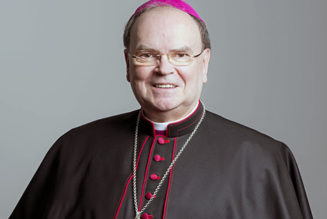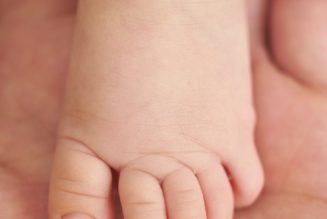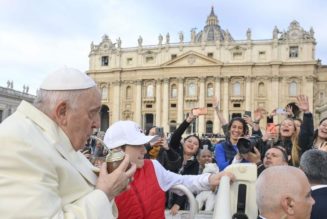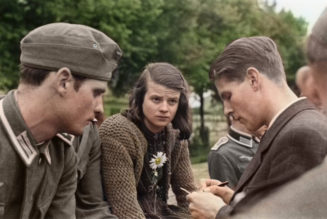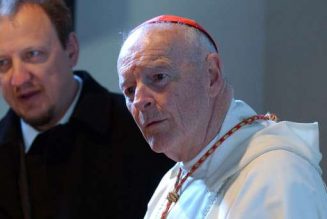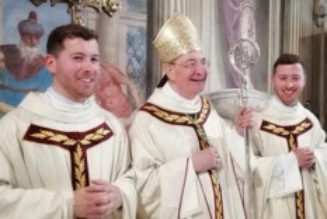, January 7, 2021

This Sunday, the Baptism of the Lord (Year B), begins a whole new chapter in humanity, one we too often forget — especially in times of turmoil like our own.
In Sunday’s readings, God turns the prevailing power structure upside down, putting us at the top.
Every era of human history see greatness in its own way; and usually it is tied to that era’s worst sin.
In ancient cultures, the warriors were considered godlike. To conquer meant to gain honor and war prizes, especially female slaves. In the industrial revolution, wealth was the king. The world spoke in awe of “corporate titans” and thrilled to “rags to riches” stories. People sacrificed their families, communities and children (sometimes directly) to the new economic paradigm.
In our culture, technocrats rule. We are addicted to the comfort, entertainment and efficiency technology provides us, and our addictions to technology change our understanding of everything from sexuality to friendship. We are so in thrall to technology that we sacrifice our children to its ugliness, streaming pornography into schools, libraries and homes.
Jesus Christ steps into this world and is revealed to be the “mighty one” who will “baptize you with the Holy Spirit.” John the Baptist is like the drum roll leading up to Jesus, but then when Jesus appears before him in Mark there is not a cymbal clash but a mezzo piano. Jesus bows his head and is baptized, the sinless one who takes a place among sinners.
That means that Jesus redefines greatness in a new way, incentivizing a whole new set of quiet, steady virtues. They are described throughout Sunday’s readings.
Isaiah tells us that this Messiah “shall bring forth justice to the nations, not crying out, not shouting, not making his voice heard in the street.” In another Isaiah option for this Sunday, he is compared to “the rain and snow” that “water the earth.” In the book of Acts option for the Second Reading, Peter sums up Jesus simply as the one who “went about doing good.”
The greatest powers are quiet and unnoticed but fundamental: The movement of the earth, the growth of seeds, the oxygen in the atmosphere. This is the kind of power Jesus Christ is in the spiritual life. He may be unseen, but he changes everything. It takes faith to tap into his power.
“The victory that conquers the world is our faith,” St. John says in the alternative Second Reading. “Who indeed is the victor over the world, but the one who believes that Jesus is the Son of God?”
Faith absolutely conquers. That’s why technocratic America keeps beating Christian America.
Christians tend to see very clearly what is wrong in the world today, but we lack the willpower to overcome it.
We see how technology is fueling a loneliness epidemic leading to unprecedented deaths of despair, but we don’t take serious measures to build community. We know pornography is reshaping minds, but make little or no attempt to ban it. We know that the technocratic experiment in “gender ideology,” as Pope Francis points out, is “part of a global war to destroy marriage;” but we allow it anyway, even at the level of the Supreme Court.
The reason for all of this is simple: The faith of Christ’s opponents is great, and the faith of his followers is slight. “The best lack all conviction, while the worst / Are full of passionate intensity.” They have the courage of their convictions. We react with cowardly compromise.
St. John shows the courage our baptism should give us.
“Everyone who believes that Jesus is the Christ is begotten by God,” St. John writes, adding: “whoever is begotten by God conquers the world.”
He spells out what the faith that can prevail looks like. It is the sure knowledge that Christianity is not a competing ideology against the world, but an adoption by God that transforms us into sons and daughters of the king of the universe.
St. John describes our reality poetically, saying: “This is the one who came through water and blood, Jesus Christ. … So there are three that testify, the Spirit, the water, and the blood, and the three are of one accord.”
The Church tells us the same thing in plain prose: Baptism is our “birth into the new life by which man becomes an adoptive son of the Father, a member of Christ and a temple of the Holy Spirit” while the Eucharist “preserves, increases, and renews the life of grace received at Baptism.”
The Baptism of Jesus shows what our next move should be.
When Jesus was presented in the Temple, his own family was acknowledging that he belonged to God, not them, and that they only had him on loan. But they still took him home where he was subject to them.
At the Baptism of Jesus, the Lord breaks personally from his family. He is no longer on loan to them, but belongs only to the Father.
For most of Catholics it happens the same way. Our family baptized us as infants, giving us irrevocably to God. Now, we need to make our baptism our own and break not just from our families, but also from the world.
Jesus “saw the heavens being torn open and the spirit like a dove descending upon him,” then heard a voice which, in Mark, the crowd does not hear, saying “You are my beloved Son; with you I am well pleased.”
This is exactly what happened to each of us. He chose us out of the world, gave us the Holy Spirit and called us his beloved child. If we listen to him and believe what he says, our faith will conquer the world.
Tags: Baptism of the Lord Year B, prayer, Sunday Gospel, Sunday Readings
Never miss a post! Subscribe below to our weekly newsletter.
Related
Join Our Telegram Group : Salvation & Prosperity

